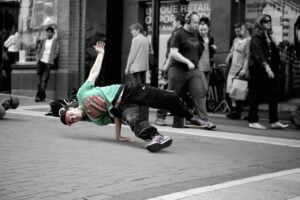The anger is rising again. The chorus is growing in Russia against Vladimir Putin with protesters en masse taking to streets across the country asking the President to leave. It looks like a repeat of 2013. That time the Kremlin relented. Then, opposition leader Alexei Navalny was suddenly released by the court despite his sentencing. This time it seems unlikely. Now, the fate of Navalny is in the balance. Even though his arrest has once again triggered a wave of agitation against the Putin government.
Alexei Navalny has turned a beacon of hope for the Russians who want to get rid of the current regime. Once an intelligence officer, Vladimir Putin has been controlling the country since 1999, either as a President or a Prime Minister. He has faced criticism for exploiting (and amending) the loopholes in the constitution to stay in power.
Also Read | G7 summit: China snubbed, India invited. What it means
Lawyer-turned-activist Alexei Navalny began to blow the lid off the thriving corruption in Russian politics. Since 2008, he started posting blogs and YouTube videos to expose the system and became a hero of the common man. But his ascension to power was blocked in 2018 when Russia’s Central Electoral Commission banned him from contesting against Putin in the presidential election. He was declared ineligible because of his conviction in a corruption case.
Alexei Navalny may have fallen out of favour with the law of the land, but he continues to be a big force behind the opposition in Russia. The unending attempts on his life have buttressed the public support for him. He was targeted with a chemical substance in 2017, attacked in 2019 again after his arrest, and poisoned last time in August 2020, when he had been posting videos on YouTube advocating democracy in Belarus.
Russia has a history of poisoning attacks on dissidents, even in foreign lands. When former intelligence officers Alexander Litvinenko (2006) and Sergei Skripal (2018) were targeted in the United Kingdom, the British investigating agencies pointed their finger at the Russian intelligence agency. Journalist and human rights advocate Anna Politkovskaya was killed in 2006. Similarly, Pussy Riot activist Pyotr Verzilov suffered an attack in Moscow in 2018.
However, Alexei Navalny not only survived the poisoning attack after months of treatment in Germany but also drew the attention of international media and governments. And as soon as he landed back in Russia, he was detained and sent to 30-day custody.
Navalny has been accused of violating parole terms in an embezzlement case in which he got a 5-year suspended sentence. He called it a mockery of justice and urged people – in a video address from the police station – to take to the streets for the sake of democracy.
Braving freezing weather, over 30,000 people poured out into the streets on Saturday expressing their solidarity for Navalny. Protests were held in over 70 Russian cities. Capital Moscow witnessed one of the largest demonstrations since 2012 when over a hundred thousand people protested against ‘skewed’ elections.
On Saturday, famous Pushkin square was flooded with protesters chanting ‘Putin go away and ‘Freedom for Navalny’, pelting snowballs at the armoured police, even coming to blows with them. Several protesters were detained from across the country that included youth who were warned against participating in the demonstrations. Navalny’s wife, Yulia Navalnaya, said she was detained during a rally in the Russian capital.
Also Read: Why India pins hopes on new US President Joe Biden
Predictably, Russia’s national Investigative Committee has launched an inquiry into violence against police officers. Those who encouraged schoolchildren on social media to join the protest will also be brought to book.
In 2013, a similar protest paved the way for Alexei Navalny’s release. A day after the stir, the court commuted his sentence to probation and released him immediately. The sequence of events raised eyebrows if the Kremlin influenced the decisions of courts.
Navalny’s supporters believe what worked in 2013 will work in 2021 as well, and the large scale protest will force the Putin government to release him again. But times have changed in the last seven years. At home, Navalny is a bigger political threat to Putin now. Plus, he has got sympathisers outside the Russian boundary also. From Germany to the United States, several countries have condemned the Russian crackdown on Navalny.
A video released by Navalny’s team after his arrest in Russia has aggravated the situation. The heat is on Vladimir Putin after the video claimed that the Russian President secretly built an expensive palace on the Black Sea coast spending £1bn through bribes. Even though the Kremlin has denied the allegation, the episode certainly would have frayed Vladimir Putin’s nerves, scuttling any probability of political peace in the country.









Musk’s college photo with sweetheart auctioned
Covid symptoms despite jab? How it depends on your vaccine
An apology after mass firing: Viral saga of Better.com CEO